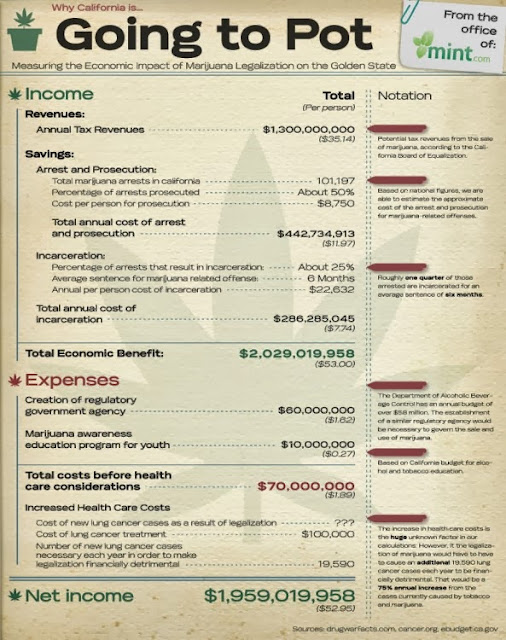Tired of hypocrisy, duplicity, and feeling as though they’ve been left in the dust, more than half of the ‘Golden States’ voters are fired up and ready to show their support for the legalization of marijuana, per a new statewide poll from the Public Policy Institute of California.
As California’s frustration with marijuana prohibition and runaway state debt hits an annoying crescendo, the germination efforts to author a constructive 2014 ballot initiative has already taken root. With marijuana legalization inevitable, many of the state’s residents are curious to know… If marijuana were legalized, who would smoke it – and what type of revenue increase would they actually realize?
The dope new survey, initiated by PPIC (public policy Institute of California) and financially backed by the James Irvine Foundation, demonstrated that currently 52% of the state’s registered voters (and 60% of likely voters) are down with marijuana legalization. Demonstrating marijuana legalization’s fast-growing support, it was just last year that the same polling group identified a disappointing 45% support for relaxed pot laws.
“Our state has for many years lived with medical marijuana – not to say it isn’t controversial in locations, but it’s generally accepted,” PPIC president Mark Baldassare told a Sacramento newspaper. “It’s really now a different political context for having discussions about where does California go with legalization.”
Receiving an overwhelming 60% support from both non-Hispanic Caucasians and African Americans, and a disappointing 36% from our residence hailing from south of the border. While California’s Asian population only managed to cultivate 48% support. Bridging the gap from 18 – 55+, recreational pot legalization currently stands at about 50%.
Lynne Lyman, the California state director of the Drug Policy Alliance (DPA), a national non-profit that advocates for drug law reform, attributes the shift to a more informed public. “There’s a consensus that marijuana is less harmful than tobacco or alcohol,” she says.
The DPA director claims that if a ballot initiative legalizing recreational weed consumption were to pass in California in 2014 or 2016, the state would have to “develop a regulatory infrastructure from scratch,” but she wouldn’t foresee it being challenged in the way that, for example, Proposition 8 was challenged in the context of same-sex marriages. And for now, she says, the Department of Justice is allowing Washington and Colorado to implement their recent legalization of marijuana, though the DOJ could decide to change its approach in the future.
Ms. Lyman then concluded that marijuana legalization would result in “tremendous tax revenue” for the state; claiming that California could raise $1.4 billion annually by taxing and regulating marijuana sales.


No comments:
Post a Comment